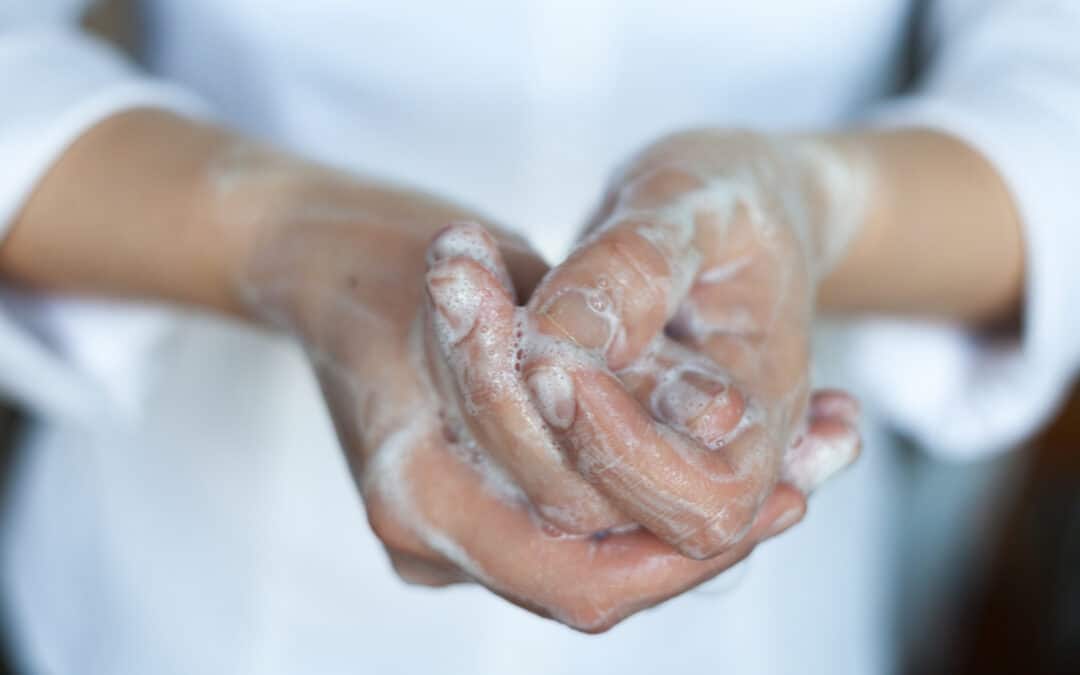According to the Centers for Disease Control and Prevention (CDC), “[h]andwashing is one of the best ways to protect yourself and your family from getting sick.” This is because many illnesses—including colds, the flu, COVID-19, and certain gastrointestinal infections—can be spread through touch. You could become infected if you touch a contaminated surface and then prepare food or drinks or touch your eyes, nose, or mouth before washing your hands.
That’s why it’s so important to keep your hands clean. But to maximize the effectiveness of handwashing, it is critical that you use proper techniques. Below, we explain when exactly you should wash your hands, discuss handwashing best practices, and answer the question of whether hand sanitizer is a viable substitute for soap.
When You Should Wash Your Hands
Generally speaking, you should wash your hands anytime you’ve touched something that could potentially be contaminated with germs. For instance, be sure to wash your hands after:
- Preparing food
- Eating
- Using the bathroom
- Changing a diaper
- Sneezing or blowing your nose
- Coughing
- Touching your face mask
- Caring for someone who’s ill
- Treating a wound
- Feeding or petting an animal
- Picking up animal waste
- Handling garbage
- Touching a commonly used surface (for example, a doorknob or shopping cart)
You should also wash your hands before you do anything that could transfer germs to yourself or someone else. For example, it is important that you wash your hands before:
- Touching your eyes, nose, or mouth
- Cooking
- Eating
- Treating a wound
- Caring for a sick person
Handwashing Best Practices
To help ensure the best possible results, follow these steps when washing your hands:
- Wet your hands using clean, running water (the water can be warm or cold).
- Apply soap to your hands, then rub your hands back and forth to create a lather.
- Scrub your hands for at least 20 seconds, making sure to get your palms, the backs of your hands, your fingers and thumbs, and the space under your fingernails (many people find it helpful to time themselves by singing or humming the “Happy Birthday” song twice).
- Rinse your hands.
- Either air dry your hands or dry them with a clean towel.
You should always strive to wash your hands with soap and water, rather than hand sanitizer, since sanitizer can’t remove all types of germs and isn’t as effective at cleaning off dirt, grease, and chemicals. But if soap isn’t readily available, you can use hand sanitizer instead. In that event, be sure to use a hand sanitizer containing at least 60% alcohol and rub the gel all over your hands until it completely dries (this usually takes approximately 20 seconds).
What if You Still End Up Getting Sick?
Properly washing your hands is a great step to take toward staying healthy, along with eating a nutritious diet, exercising, and getting enough sleep. Unfortunately, no matter how many precautions you take, it is still possible for you to get sick. If that happens, you can turn to Jovive Health for urgent care treatment. We have locations in Cameron Park, CA; Chicago, IL; Lombard, IL; and Henderson, NV—all of these clinics are open seven days a week, offer same-day reservations, and accept walk-in patients. Visit us today.


